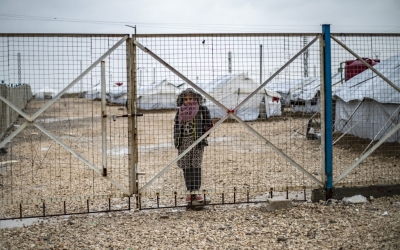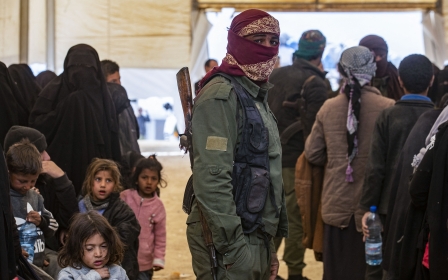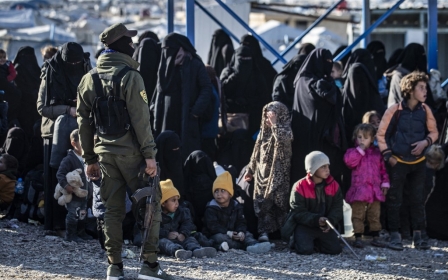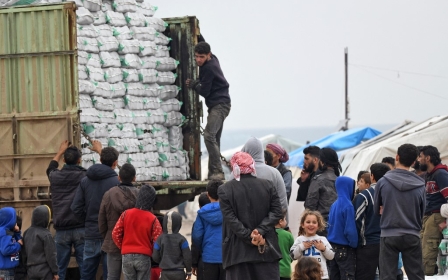US urges international community to repatriate foreign nationals held in Syria
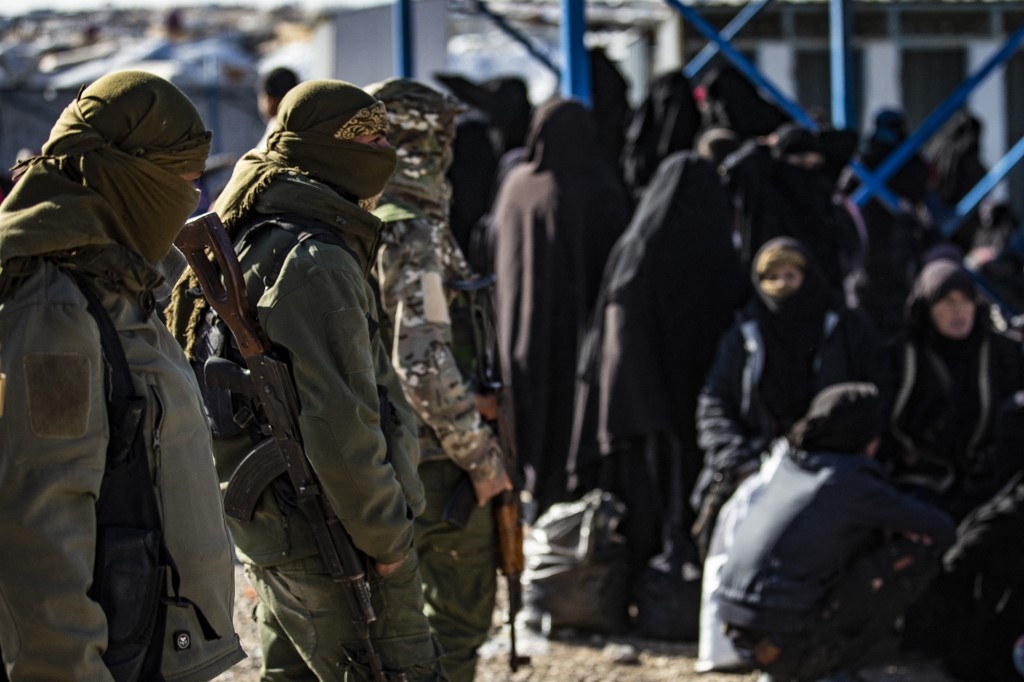
The Biden administration has called on the international community to repatriate citizens and their families from squalid camps in Syria, echoing a similar call made last month.
John Godfrey, US special envoy for the global coalition to defeat the Islamic State (IS) group, said victory over the armed group would be squandered if foreign fighters were not repatriated and prosecuted in their home countries.
"This is an international problem that requires an international solution," he said during a briefing on Monday ahead of a virtual meeting of the coalition to defeat the IS group.
"We urge the international community to consider how they might support both humanitarian agencies who are providing to those populations now, as well as consider the repatriation of their own citizens in order to help relieve the burden on our local partners."
Godfrey noted that around 2,000 foreign fighters were still being held in Kurdish-run camps in northeastern Syria. He added that 10,000 of those fighters' relatives, mostly women and children, are also housed in displacement camps.
Humanitarian and human rights organisations have previously raised concerns about conditions in the camps that have led to the avoidable deaths of hundreds of babies and infants.
Kurdish officials say they lack the resources to manage the camps effectively and have called on countries to repatriate their nationals.
The US has so far repatriated 28 citizens - 12 adults and 16 children - from camps in Syria, and has prosecuted, or is currently prosecuting, 10 of those adults, according to Godfrey.
'The right thing to do'
Most European Union member states and other western countries, including the UK and Canada, have so far largely failed to implement policies to bring home their nationals, although some have repatriated children, mostly orphans, on an ad hoc basis.
The UK has returned a small number of orphans of its citizens but has refused to consider any still accompanied by their families. The country's foreign office has said its priority was "to ensure the safety and security of the UK. Those who remain in the conflict zone include some of the most dangerous individuals, choosing to stay to fight or otherwise support Daesh", according to The Times.
The newspaper added that between 35 and 50 British children were estimated to remain in camps, along with scores of adults.
In a resolution earlier this month, the European Parliament called for the repatriation of children from European Union countries held in those camps.
Last month, another US official said the global threat of the IS group would continue to grow if countries did not repatriate their citizens.
Jeffrey DeLaurentis, US ambassador for special political affairs, told the United Nations that "beyond being the best option from a security standpoint, repatriation is also simply the right thing to do".
Middle East Eye delivers independent and unrivalled coverage and analysis of the Middle East, North Africa and beyond. To learn more about republishing this content and the associated fees, please fill out this form. More about MEE can be found here.


